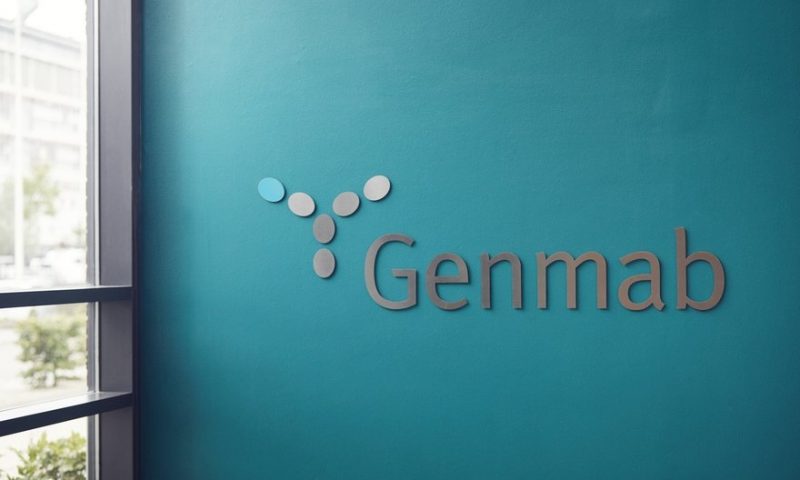AbbVie is set to pay Genmab $750 million upfront for a stake in a pipeline of anti-cancer bispecifics led by epcoritamab. The deal, which features up to $3.2 billion in milestones, positions AbbVie to race Regeneron to market with a bispecific antibody that could compete with CAR-T therapies.
Genmab has consistently targeted a mid-2020 agreement covering the rights to CD3xCD20 bispecific antibody epcoritamab, telling investors that it aimed to book U.S. sales, retain a 50% split and secure promotion rights through a deal with a “blue-chip” partner. As recently as this month, Genmab CEO Jan van de Winkel said multiple parties were still in the running.
Now, AbbVie has landed rights to epcoritamab by agreeing to Genmab’s redlines for the deal, putting up $750 million upfront and committing to a partnership that extends far beyond epcoritamab.
AbbVie will share commercial epcoritamab responsibilities with its new partner in the U.S. and Japan, where Genmab will book sales. AbbVie will handle commercialization in the rest of the world, with Genmab receiving tiered royalties of between 22% and 26%.
The agreement grants AbbVie similar rights to a CD3x5T4 antibody and another bispecific targeting CD37. Genmab can choose to co-commercialize those assets outside of the U.S. and Japan. Those two candidates and epcoritamab are worth up to $1.2 billion in clinical and commercial milestones to Genmab.
AbbVie and Genmab will also try to combine their respective antibody-drug conjugate and bispecific technologies to create up to four additional candidates through a discovery-stage collaboration. The newly discovered candidates, which Genmab will take through phase 1, are covered by similar terms to the CD3x5T4 antibody and are collectively worth up to $2 billion in milestones to Genmab.
Epcoritamab is the near-term focus, though. Last month, Genmab revealed half of the diffuse large B-cell lymphoma patients treated with weekly, subcutaneous doses of 12 mg or more of the bispecific in a phase 1/2 trial responded. Two of the three evaluable patients who received the phase 2 dose had partial responses. Both patients had previously been treated with CAR-T therapies.
The efficacy data are broadly in line with those generated by Regeneron’s rival CD3xCD20 bispecific REGN1979. Analysts at Jefferies think epcoritamab may have an edge in terms of safety. The lack of cases of grade 3 or worse cytokine release syndrome (CRS) in the phase 1/2 epcoritamab trial offers early support for that hypothesis. Seven percent of patients on REGN1979 had grade 3 CRS.
Based on the limited clinical data available, both REGN1979 and epcoritamab look like they can hold their own in terms of efficacy against CAR-Ts, raising the prospect of the bispecific antibodies being used earlier in the treatment pathway than the cell therapies. However, more data, notably on the durability of responses triggered by bispecifics, are needed before the role epcoritamab can play comes into clear focus.

